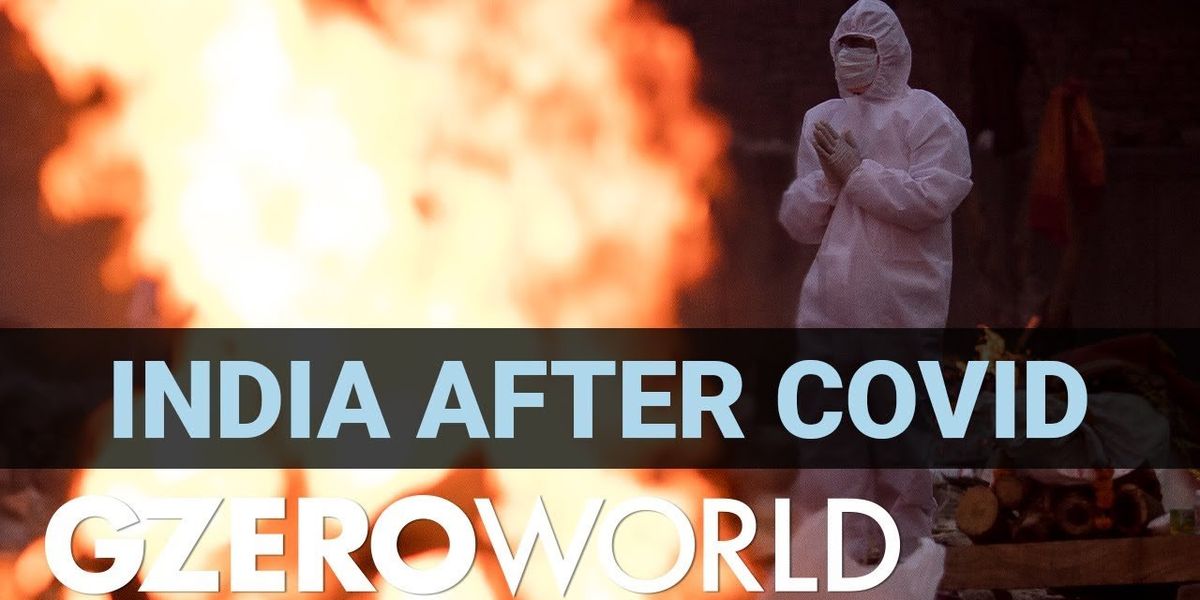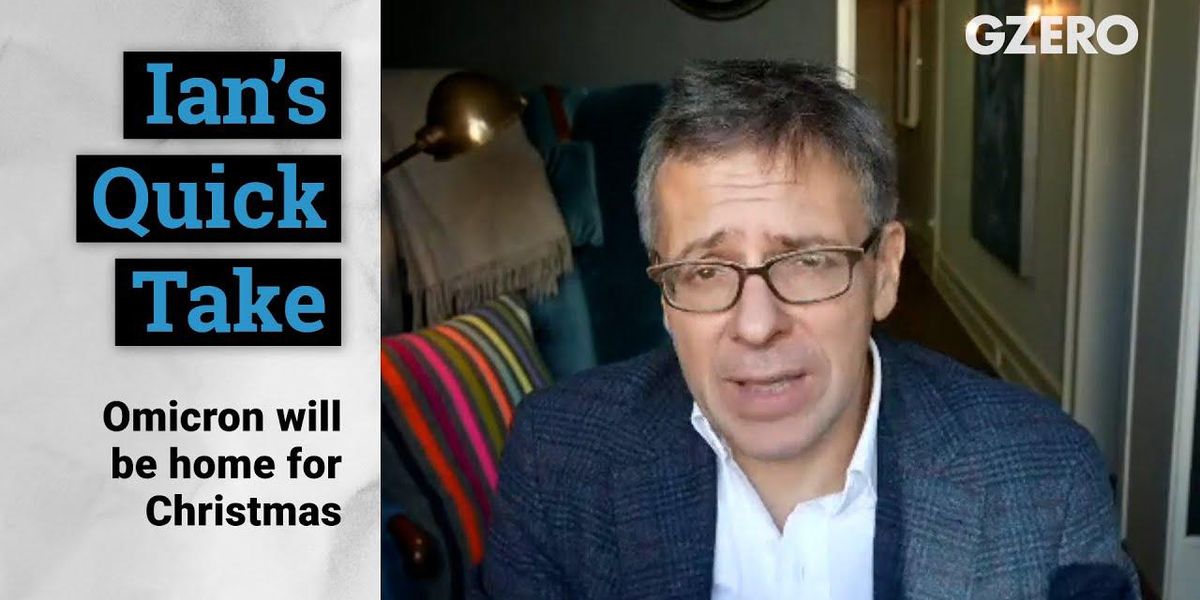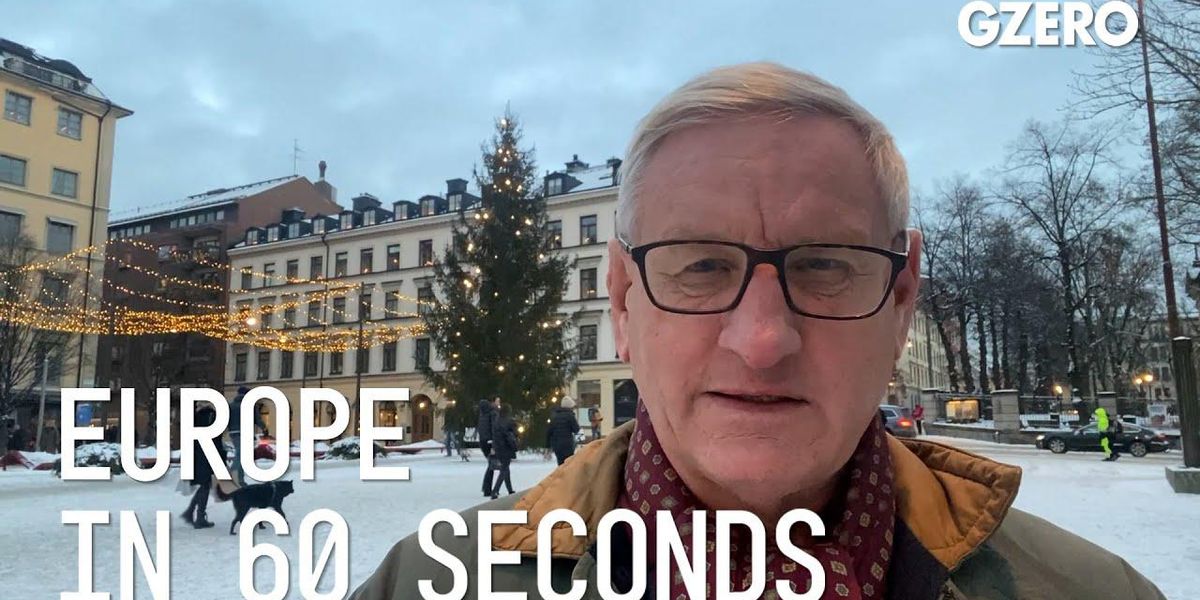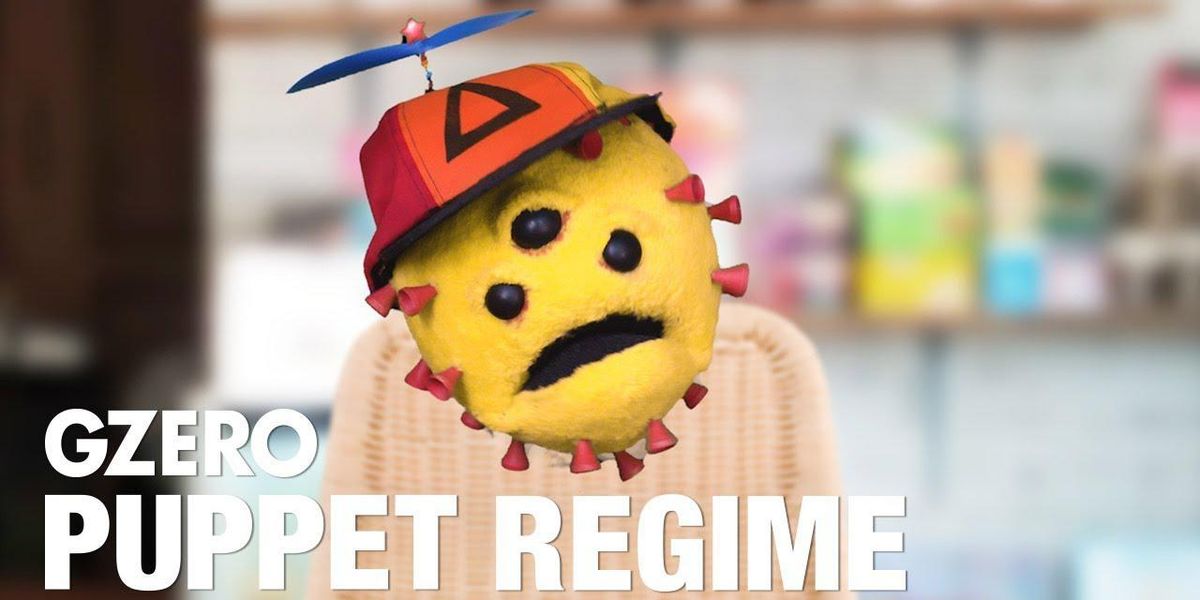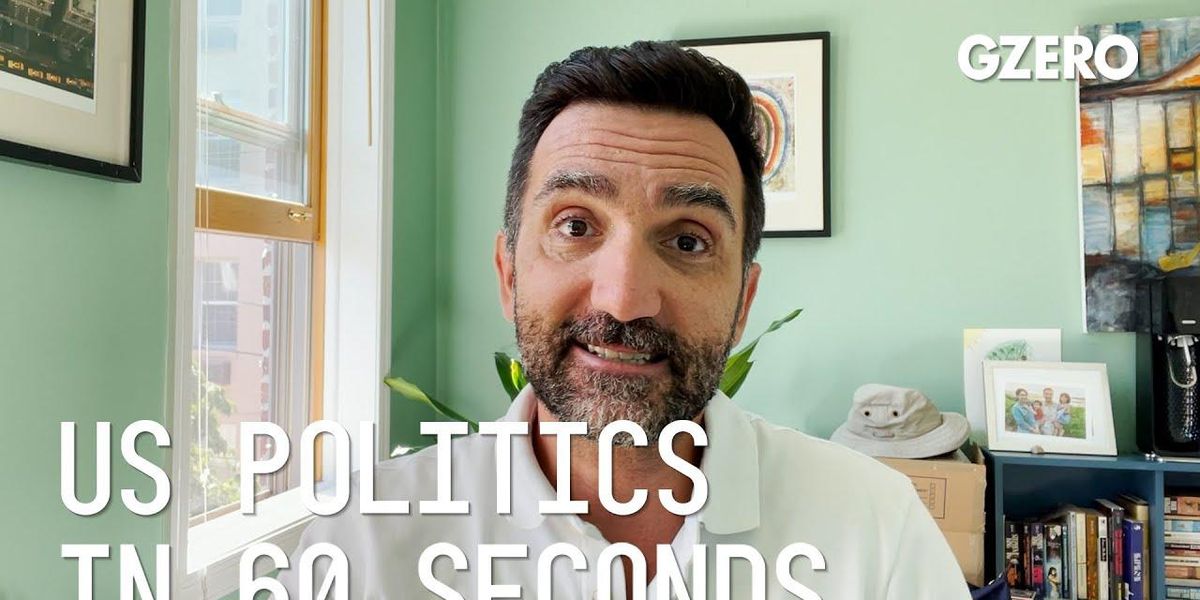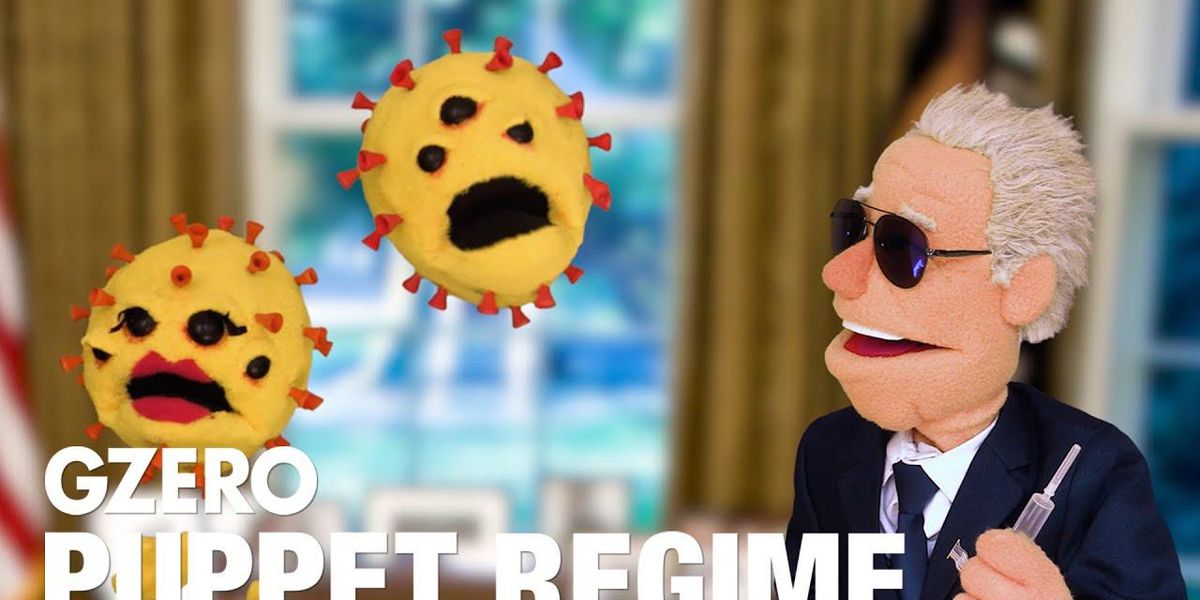Trending Now
We have updated our Privacy Policy and Terms of Use for Eurasia Group and its affiliates, including GZERO Media, to clarify the types of data we collect, how we collect it, how we use data and with whom we share data. By using our website you consent to our Terms and Conditions and Privacy Policy, including the transfer of your personal data to the United States from your country of residence, and our use of cookies described in our Cookie Policy.
{{ subpage.title }}
India after COVID
Few nations were as ravaged by COVID as India, especially when the Delta strain tore through the country in the spring of 2021. Delhi-based journalist Barkha Dutt experienced its toll as both a journalist and a daughter. Back when she first appeared on GZERO World in May 2021, she had just lost her father to COVID. She was simultaneously grieving and covering COVID's impact across India.
Two years later, Ian welcomes Dutt back on the show to discuss a wide range of US-India issues, but also to check in with her on how the trauma of COVID has changed her life, as well as the direction it has taken her country, two years later.
"It's been, personally, a very, very painful time, and professionally, ironically, some of my best work, and to reconcile that is quite a difficult thing to do, emotionally."
Tune in to “GZERO World with Ian Bremmer” on US public television to watch the full interview. Check local listings.
Is omicron the best thing that’s happened since the pandemic started?
With the omicron COVID variant fast conquering every corner of the globe, people and governments are once again forced to make difficult decisions about pandemic policy and personal behavior. Borders are closing and testing sites are overwhelmed.
But is there something different about this wave from previous ones? We sat down with Eurasia Group public health expert Scott Rosenstein to get some perspective.
Scott, let’s start with the basics. What do we know about 0micron, and what don’t we know?
There are three big questions, and we have a decent understanding around two of them.
First, transmissibility — it’s spreading far and wide, and it’s hard to see anything that will stop that. It’s quickly outcompeting delta in the US, UK, Denmark, and likely many other countries in the coming weeks.
Second, vaccines – all of the vaccines, but particularly the mRNA ones, still seem to reduce the risk of severe illness and death even without a booster (though less so than with earlier variants.) But they are struggling mightily against a highly contagious variant that can take hold in your nose before your immune system even has time to respond. An mRNA booster (and possibly others) should restore some protection against even mild infection and transmission, but for how long is unclear.
Third, severity — the most hotly debated and poorly understood question of the three. There’s already a cottage industry of hot takes out there. My lukewarm take has always been that this question would take the longest to answer and will require a ton of caveats — we still can’t even really answer it conclusively with delta. And delta showed lower rates of hospitalization and death per case in places with high levels of vaccination or previous infection, even if the variant itself likely isn’t fundamentally less severe.
For omicron, that could also be the case. It does, however, seem like South Africa is experiencing a less severe outbreak. And there is evidence that it replicates less well in the lungs. Both of those things are positive signals, but the reality is that we just don’t know yet and won’t for at least a few more weeks with data from other countries.
South Africa seems to have peaked fast, is that likely to be the same elsewhere?
We should be very careful about generalizing South Africa’s experience — the demographic and epidemiological profile there is very specific. A fast rise and similarly precipitous drop certainly isn’t out of the question in many places, but remember: delta is still bouncing around twelve months after it was first identified, and it spread way faster than earlier variants. There’s isn’t going to be one timeline for all countries or regions within countries.
Does the timing and nature of omicron change the kinds of political challenges that governments face in dealing with it?
We’re two years into an already exhausting and painful pandemic. The longer this drags on the more politically divisive it becomes, which undermines coordinated and evidence-based policymaking. Broadly, rich countries may be able to cushion the blow of additional disruptions with more fiscal stimulus, but the political environment for making that happen continues to deteriorate. Less wealthy countries don’t even have that luxury.
Right. What about stuff like vaccine mandates, lockdowns, and schools?
Many countries have decided that vaccine mandates are the best of a bad set of options to curb spread. That position won’t likely change, but it’s going to get more complicated with questions around what constitutes “fully vaccinated” and what vaccines qualify under the mandates.
Schools is a touchy issue. Some are likely going to be able to stay open safely, thanks to tests, ventilation, vaccination, and small class sizes. But not all of them, and a blanket policy to keep all schools open would overlook the lower-resourced ones where a lot of kids are returning home to multi-generational households where the grandparents are the caregivers because the parents need to work and can’t do it over Zoom.
What did you make of President Biden’s omicron speech on Tuesday?
It’s hard to figure out who exactly he is trying to reach at this point since so many people have dug in on their respective positions. He’s right to point out the risks to the unvaccinated but shaming them probably won’t move the needle that much and could embolden the vaccine opposition. Bolstering healthcare capacity with federal resources including the military should help hard-hit areas. But if things get bad in too many places that may be more of a band-aid on a gaping wound. And sending 500 million tests to people’s homes is a great idea — for twelve months ago. The consistent underperformance on testing remains a big unforced error for the US public health response. Better late than never I guess.
Is there a world in which Omicron gets us faster to the endemic nuisance stage of the pandemic?
That world exists. I wouldn’t expect to wake up in it in the coming weeks. That best-case scenario remains possible in the medium term: i.e. this variant results in much less hospital strain than previous waves, and builds a wall of immunity against severe illness high enough to keep hospitals from overflowing again.
“If it bleeds it leads” is a common saying in journalism. But one of the interesting things about this pandemic is that there is also an incredible demand for good news, and that can lead (again) to a false sense of security and mission accomplished bias. So we should be careful not to smoke too much of that sweet sweet hopium™.
- The Graphic Truth: Two narrowing pandemics – EU vs US - GZERO Media ›
- Russia's actions towards Ukraine are strengthening NATO - GZERO Media ›
- Omicron & the undoing of China's COVID strategy - GZERO Media ›
- COVID ain't over - GZERO Media ›
- "Stunningly infectious" COVID demands better preparation, says Former CDC director - GZERO Media ›
Omicron will be home for Christmas
Ian Bremmer's Quick Take:
Happy Monday, and yeah, I think I'm still talking to you about the pandemic. I was hoping I would be talking a lot less about the pandemic these days, but we are in the midst of very significant learning on the omicron variant, and I thought I would share what we know and what we really don't know, because the headlines obscure that.
What we know: Big news is that the vaccines don't work very well at all to prevent spread. And that's even true for the mRNA vaccines, the best vaccines, Pfizer and Moderna, that if you've taken two shots, which means that you're considered fully vaccinated and you've got your app, or you've got your vaccine passport, you really aren't protected from getting infected from omicron. Pfizer showing after two vaccine jabs something like 23% effectiveness, which is not effective at all. And the non-mRNA vaccines look like they're even worse, which means that a very, very transmissible strain is not being prevented by the vaccines. That's the bad news, and it's bad news.
Having said that, we know that they work really well to prevent hospitalization and death. And that's not just true for the mRNA vaccines. It's true for other vaccines too. And by the away, it's true even before you get a booster shot. In other words, if you've just gotten two shots from Pfizer, two shots from Moderna, you're really not going to get hospitalized or die from COVID. It's very, very unlikely indeed, but you are quite likely to be able to contract it and spread it, and that's a problem.
Now, we've seen a lot of headlines that say that Omicron is milder as a variant. And the reality is, we don't know that. What we know is that a lot more people are vaccinated, and we also know that the vaccinated people are particularly among those that are most vulnerable. The oldest, the people that have preexisting conditions. That is a population that is very significantly vaccinated, in some countries close to 100%, which means that the outcomes are milder than they would have been from delta, simply because omicron is hitting populations that are more protected against hospitalization and death. And that the people that aren't vaccinated are primarily people that aren't likely to get sick from COVID. Younger, healthier populations. But we don't yet have any conclusions around to what extent you are equally or more or less likely to get seriously sick if you are unvaccinated, even if you're unvaccinated and you already got COVID, than from delta. And that uncertainty is something we probably won't have real data on for at least another week or two.
And I will tell you that the epidemiologists that I've been talking to tell me that if they were to guess, they'd guess that so far, educated guess, that it's probably about the same or maybe a little milder, but not much, than delta, and that most of the change is from the change in population, as opposed to the impact of the disease.
Okay. We also know that omicron is spreading really, really fast. That it's going to be dominant in the United Kingdom and very shortly as a variant. It's already in 30 states that we know of in the US. That means it's really in every US state, and it will be the dominant spread in the United States within a few weeks. So yes, omicron will be home for Christmas. And also some good news is that vaccinations are getting pushed up. We're seeing people more quickly get vaccinated, get their boosters as a consequence of the news around omicron.
Having said all of that, the staggering level of spread even among vaccinated populations mean that hospitals could easily get overwhelmed again as a consequence of this. In the next week in the United Kingdom, that's absolutely possible. In Denmark, that's absolutely possible. And in the United States over the coming month, that's absolutely possible as well. So we are not out of the woods, and that means in terms of travel, in terms of vaccine passports, you're going to see a lot of changes.
Increasingly, if you've got two vaccines, that's not going to be seen as enough to travel internationally, which is annoying to a lot of people, because you kind of assumed that it would even a week or two ago. Now, no, not so much. And what if you've been boosted? Well, you're probably going to need another booster in six months' time. Again, in all of the apps and the vaccine passports and the papers that are allowing you to go to restaurants, and shows, and travel, in those places where those regulations exist are likely to get updated to require a booster shot, and then eventually another booster shot, too.
Madness. When does it all end? Well, it is a problem because the nature of the vaccines and the relationship with the disease make this much harder to politically respond to. In other words, the argument for getting your booster shot is not about whether or not you're going to get sick. The argument about getting the booster shot and another booster shot is about protecting people that are unvaccinated, protecting those that are immunocompromised, even if they have been vaccinated, and that's a harder argument to make. It's a harder argument for politicians to be effective at. It's a harder argument to push mandates upon a population.
And having said that, you look at the last few months, and Kaiser Family Foundation just put out a study in the United States where we're still seeing 1,000 deaths on an average day from COVID. 163,000 people did not have to die from COVID if we had gotten full vaccination rates. In other words, the science was there, the vaccines were there, and just the effectiveness of those vaccines on populations that are not immunocompromised, 163,000 people would be alive today that are not from COVID because we couldn't get our act together in getting vaccines rolled out, getting people to be willing to take them.
And that is the problem going forward. I'm not going to die from COVID. If you've been vaccinated, you're not going to die from COVID, but a lot of people will. And they will from this omicron variant, because we are unable to ramp out boosters fast enough, and second boosters fast enough, which a lot of people are sick of, a lot of people aren't going to feel comfortable with. We don't have the regulatory capacity to get it done, and that means the non-vaccinated population is going to be incredibly vulnerable and exposed. And it also means that economic impact of all of that will continue to grow, and that's around the world. That's not just the United States, that's everywhere, and that's particularly older and vulnerable populations.
So that's what we're looking at. Merry Christmas to everybody. I'm sorry. I wish I had better news on that front. I'm still hoping that over the next week or two, we get more information that will allow us to say that omicron is actually somewhat milder in form than delta is, but right now we don't have that information. The information we have is not so happy. So that's it, and I hope everyone is doing okay, and I will talk to you all real soon.
- EU battles delta variant with omicron next; Sweden government ... ›
- Who's politically vulnerable to omicron? - GZERO Media ›
- Key questions about the omicron variant - GZERO Media ›
- Omicron variant unlikely to lead to lockdowns by governments ... ›
- Biden's rocky first year - GZERO Media ›
- Why this COVID surge is different than 2020; behind Putin's threats - GZERO Media ›
EU battles delta variant with omicron next; Sweden government turmoil
Carl Bildt, former Prime Minister and Foreign Minister of Sweden, shares his perspective from Europe:
How is Europe dealing with new omicron version of the pandemic?
Well, I mean the big issue isn't really that one, the big issue if you see the havoc that is created in several European countries at the moment is the delta. The delta is making impressive strides, particularly in countries that have a slightly lower vaccination rates. So that's the number one fight at the moment. And then we must of course prepare for the omicron as well.
What's the turmoil in Sweden about governance?
Hmm, that's a long story. It goes back to a very complicated parliamentary situation and the fact that the government, the coalition government, and the arrangement that kept in place collapsed. And then we had turmoil and turmoil. And we now have, we are first female prime minister, a very weak coalition government, the budget has been dictated by the opposition. It will survive until the September election. It can't get anything done, but it will survive. And then it's going to be the September election next year that decides the governors of Sweden in the years ahead.- Hard Numbers: Dorsey resigns from Twitter, Barbados ditches the ... ›
- Who's politically vulnerable to omicron? - GZERO Media ›
- The Graphic Truth: No trust, no jab in EU - GZERO Media ›
- The world's worst COVID outbreak (for now) - GZERO Media ›
- Omicron will be home for Christmas - GZERO Media ›
- Omicron will be home for Christmas - GZERO Media ›
PUPPET REGIME | GZERO Media
COVID family reputation on the brink
When generational differences are revealed at a family dinner, a variant move evolves.
Watch more PUPPET REGIME!
Subscribe to GZERO Media's YouTube channel to get notifications when new videos are published.
Is the world really building back better? Watch our live discussion today at 11am ET
"Pandemic" was the most used word of 2020. "Delta" looks set to inherit this year's title.
Vaccination rates are ticking up slowly. Governments aren't talking to each other enough. Parts of the world are back to normal, while others are still locked down.
Have we actually made any progress since the COVID-19 outbreak?
Unfinished Business: Is the World Really Building Back Better?
Wednesday, September 22nd, 11am ET/ 8am PT
Watch the event here.
Our speakers:
- Susan Glasser, staff writer and Washington columnist, The New Yorker (moderator)
- Ian Bremmer, President and Founder, Eurasia Group & GZERO Media
- Brad Smith, President and Vice Chair, Microsoft
- Michelle Bachelet, United Nations High Commissioner for Human Rights
- Dr. Michael Ryan, Executive Director, WHO Health Emergencies Programme
- David Malpass, President, World Bank Group
Special appearance by António Guterres, UN Secretary-General.
Visit gzeromedia.com/globalstage to watch on the day of the event.
Will Joe Manchin thwart Biden's spending? FDA credibility hit
Jon Lieber, head of Eurasia Group's coverage of political and policy developments in Washington, shares insights on US politics:
What does the disappointing jobs number mean for the Democrats' agenda?
Well, payroll employment in August came in well under expectations with under 300,000 jobs created. This is in contrast to the last several months, which really saw a torrid pace of job creation as the US started to recover from the pandemic and restrictions were lifted. With new mask mandates and the Delta variant spreading, Americans are slowing down their pace of activity and slowing down spending, which means you could see more economic volatility in the next couple of months. At the same time, Democrats are attempting to find consensus around a major new spending initiative, which would spend up to $3.5 half trillion over the next 10 years. This initiative isn't really about coronavirus pandemic recovery, or even stimulus, it's about expanding the size and scope of government for increased transfer payments and increased subsidies for education services and healthcare and also, of course, on infrastructure. The slowing jobs growth creates more fiscal space for Democrats to borrow more, and that's a real sticking point because you have moderates like Senator Joe Manchin from West Virginia, who says the US is already at their borrowing limit and shouldn't be borrowing more to spend money. This is going to be the major storyline in Washington for the next several months because it's also probably going to be the last big initiative of the Biden administration before the midterm elections next year.
Two top FDA vaccine regulators are about to leave this fall. How will this influence the vaccine rollout?
Well, the FDA has really struggled over the last year with vaccines and with the coronavirus pandemic. There's been mistakes and missteps along the way between the FDA and the Center for Disease Control, both around messaging, the science around the pandemic, and on things like testing kits, where there's been major screw-ups by the federal government. The two top vaccine regulators at the FDA announced they're going to leave, supposedly, according to some reports, because they felt like they were under political pressure to approve booster shots. The White House has said they plan on doing booster shots. They've already authorized them for people who have underlying conditions that make them more vulnerable. These two regulators leaving is just another bump in the road for the FDA. It's going to take a long time for the American health agencies to recover their credibilityThe delta skelter song
Joe Biden really thought things were looking rosy, until an unwanted variant showed up.
Watch more PUPPET REGIME!
Subscribe to GZERO Media's YouTube channel to get notifications when new videos are published.
- Joe Biden the COVID Vaccine Candyman | PUPPET REGIME ... ›
- Joe Biden's trillion dollar tune | PUPPET REGIME - GZERO Media ›
- Is the press being fair to Joe Biden? | Puppet Regime - GZERO Media ›
- Biden's mailbox is full | PUPPET REGIME - GZERO Media ›
- Biden's paid leave problem - GZERO Media ›
- The end of the affair (COVID edition) | PUPPET REGIME - GZERO Media ›
- Coronavirus vs monkeypox - GZERO Media ›
